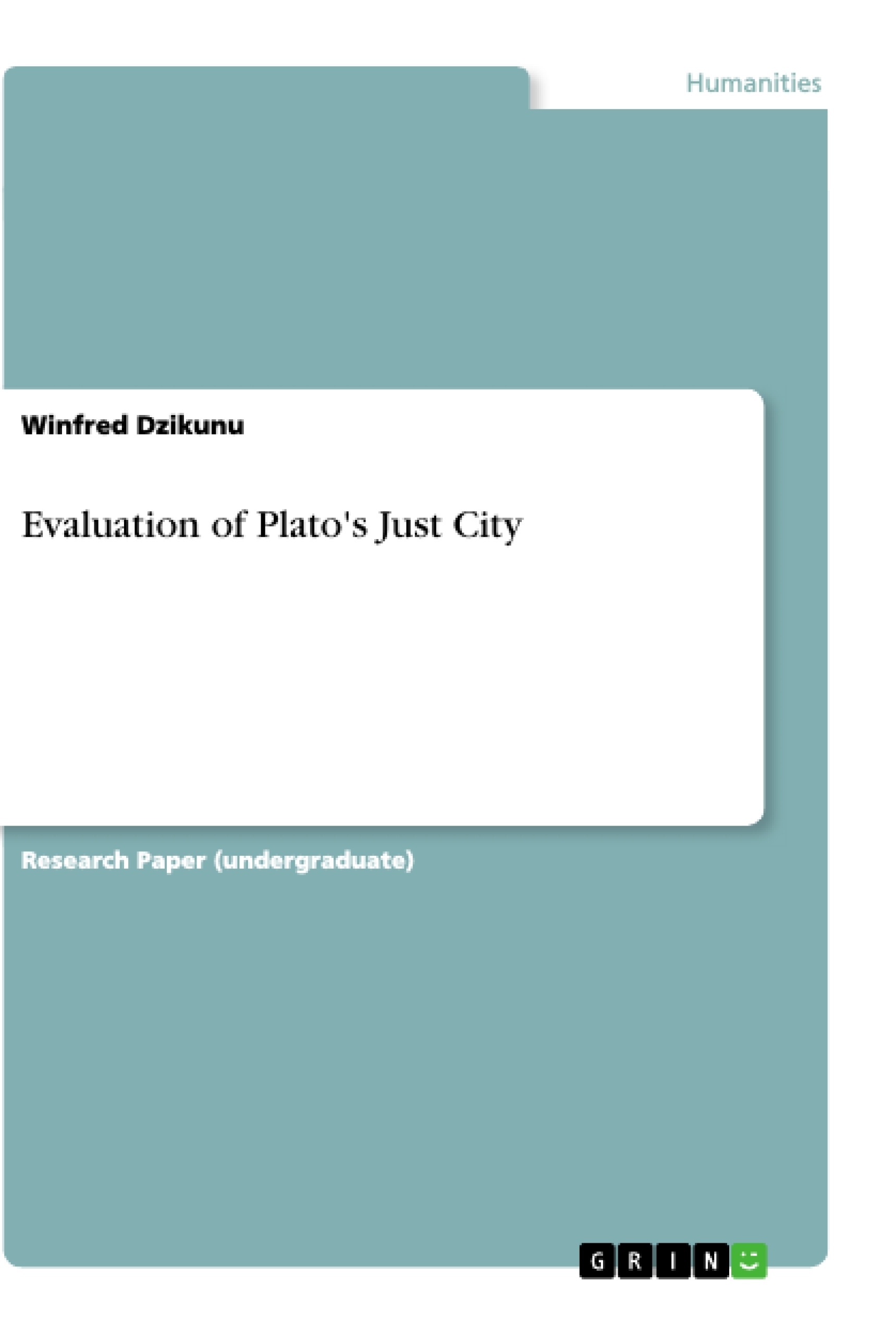Bodily exercise when compulsory does no harm to the body. It is probably Platos best-known story and its placement in The Republic is significant.
The powerful use justice in a way that allows them to keep power or gain power.

. It is generally accepted that the Republic belongs to the dialogues of Platos middle period. Hermeneutics is a special kind of interpretation. But knowledge which is acquired under compulsion obtains no hold on the mind Plato The Republic.
Within Thrasymachus first argument he uses justice in the same regard as. Since according to Plato and Socrates virtue and happiness require knowledge eg knowledge of goods and evils Platos ethics is inseparable from his epistemology. Is it always better to be just than unjust.
Platos Republic centers on a simple question. Phaidros written by Plato is a dialogue between Platos protagonist Socrates and Phaedrus an interlocutor in several dialoguesThe Phaedrus was presumably composed around 370 BCE about the same time as Platos Republic and Symposium. With this knowledge a speaker can adjust his rhetorical style to appeal most to his target demographic.
The puzzles in Book One prepare for this question and Glaucon and Adeimantus make it explicit at the beginning of Book Two. Interpretation is local and particular. Flame burns it not waters cannot oerwhelm Nor dry winds wither it.
This is also the substance of Platos view though he must be acknowledged to have drawn the line somewhat differently from modern ethical writers respecting truth and falsehood. Impenetrable Unentered unassailed unharmed untouched Immortal all-arriving stable sure Invisible ineffable by word And thought uncompassed ever all itself Thus is the Soul declared. Within Platos Republic the ideal of Justice is greatly Debated Socrates main conversationalist being Thrasymachus.
Epistemology is broadly speaking the study of what knowledge is and how one comes to have knowledge. Furthermore this understanding allows the speaker to. Your understanding of what the things are about you is bound together with your interpretation of them.
The Bhagavad-Gita describes some of the qualities of the soul. While an understanding of the whole allegory and the pondering of it can bring great insight the ultimate goal of this article is in fact to lay the foundation for two more posts to come in which we will uncover the nature of the one component of Platos vision of the soul that has almost entirely been lost to modern men. It depicts a friendly contest of extemporaneous speeches given by a group of notable men attending a banquet.
The men include the philosopher Socrates the general and political figure Alcibiades and the comic playwright Aristophanes. As in most other Platonic dialogues the main character is Socrates. In his written dialogues he conveyed and.
I say to thee weapons reach not the Life. The Symposium Ancient Greek. Understanding is global and general.
It begins as an abrupt prepackaged debaters challenge from Meno about whether virtue can be taught and quickly becomes an open and inconclusive search for the. In Platos Ion Socrates refers to. The Republic Since the mid-nineteenth century the Republic has been Platos most famous and widely read dialogue.
The Republic is the centerpiece of Platos philosophy centrally concerned with how people acquire knowledge about beauty justice and. The Athenian philosopher Plato c428-347 BC is one of the most important figures of the Ancient Greek world and the entire history of Western thought. Among the many topics included in epistemology are logic belief perception.
The Allegory of the Cave is a story from Book VII in the Greek philosopher Platos masterpiece The Republic written around BCE. Although ostensibly about the topic of love the discussion in the dialogue. Like Musical innovation is full of danger to the State for when modes of music change the fundamental laws of the State always change.
In simplest terms Thrasymachus view on justice is that it is a tool for the most powerful. Platos Meno introduces aspects of Socratic ethics and Platonic epistemology in a fictional dialogue that is set among important political events and cultural concerns in the last years of Socrates life. The upper half of the divided line is usually called Intelligible as opposed to Visible meaning that it is seen by the mind 510E by the Greek Nous νοῦς rather than by the eye.
Platos Line is also a division between Body and Mind. Regarding ethos Aristotle describes how age and fortune as in luck can affect the characters of men the speakers and audience are almost always men in the context of ancient Athens. The Phaedrus ˈ f iː d r ə s.
To answer the question Socrates takes a long way around sketching an account of a good city on the grounds that a good city would be just and that. To us economies or accommodations would not be allowable unless they were required by the human faculties or necessary for the communication of knowledge to the simple and ignorant. The speeches are to be.
Compulsion education knowledge learning teaching. In Platos early dialogues Socrates refutes the accounts of his interlocutors and the discussion ends. Συμπόσιον Sympósion sympósion is a philosophical text by Plato dated c.

An Example Of A Spousal Equivalent As Defined In Aicpa Independence Rules Is In 2022 College Degree Words Equivalent

0 Comments